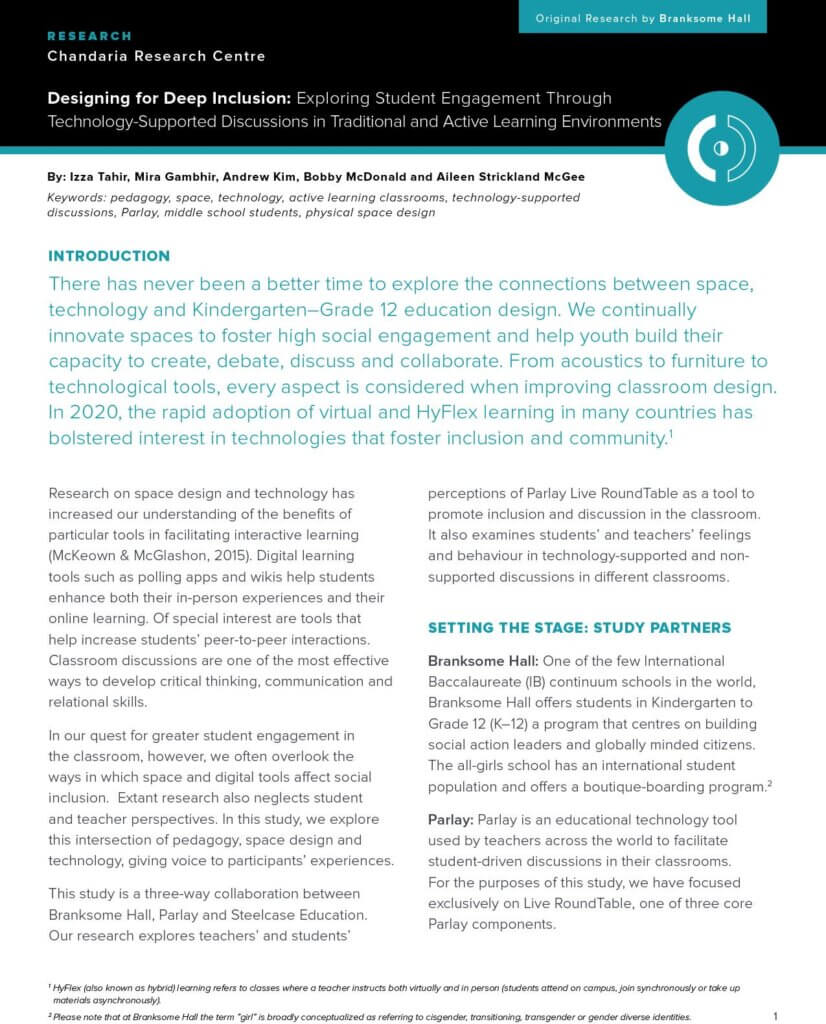Branksome Hall
Designing for Deep Inclusion
Published On:
Written By: Izza Tahir, Mira Gambhir, Andrew Kim, Bobby McDonald and Aileen Strickland McGee

Designing for Deep Inclusion: Exploring Student Engagement Through Technology-Supported Discussions in Traditional and Active Learning Environments
Overview
There has never been a better time to explore the connections between space, technology and Kindergarten–Grade 12 education design. We continually innovate spaces to foster high social engagement and help youth build their capacity to create, debate, discuss and collaborate. From acoustics to furniture to technological tools, every aspect is considered when improving classroom design.
In 2020, the rapid adoption of virtual and HyFlex learning in many countries has bolstered interest in technologies that foster inclusion and community.
Introduction
Research on space design and technology has increased our understanding of the benefits of particular tools in facilitating interactive learning (McKeown & McGlashon, 2015). Digital learning tools such as polling apps and wikis help students enhance both their in-person experiences and their online learning. Of special interest are tools that help increase students’ peer-to-peer interactions. Classroom discussions are one of the most effective ways to develop critical thinking, communication and relational skills.
In our quest for greater student engagement in the classroom, however, we often overlook the ways in which space and digital tools affect social inclusion. Extant research also neglects student and teacher perspectives. In this study, we explore this intersection of pedagogy, space design and technology, giving voice to participants’ experiences.
This study is a three-way collaboration between Branksome Hall, Parlay and Steelcase Education. Our research explores teachers’ and students’ perceptions of Parlay Live RoundTable as a tool to promote inclusion and discussion in the classroom. It also examines students’ and teachers’ feelings and behaviour in technology-supported and nonsupported discussions in different classrooms.







